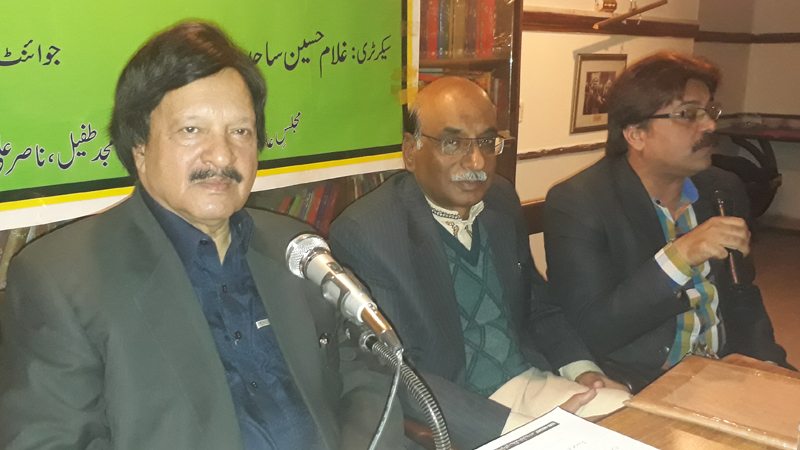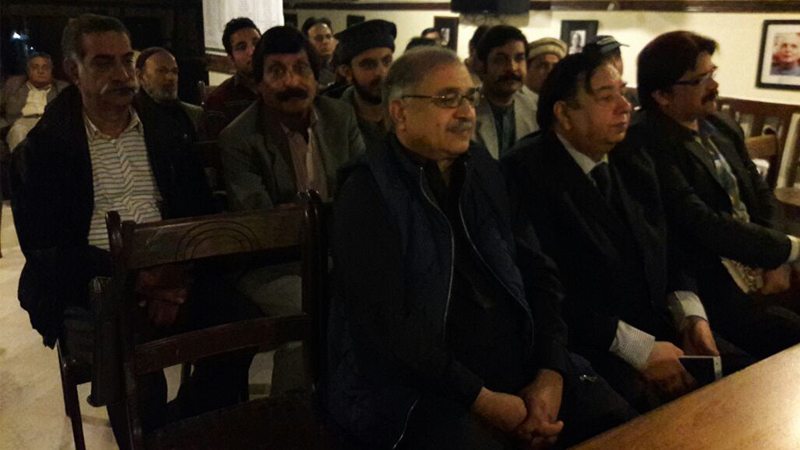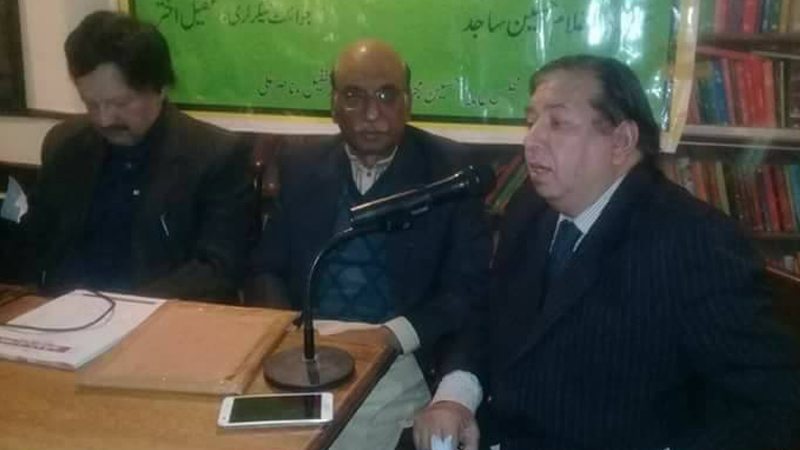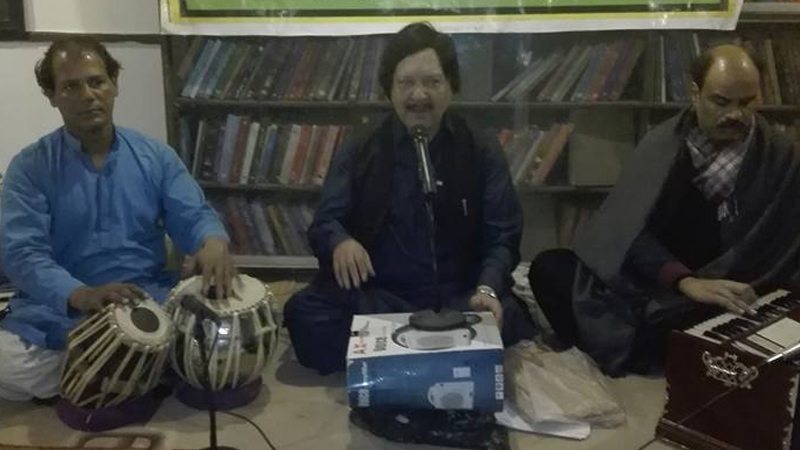 It is a tradition of the Halqa-e-Arbab-e-Zauq to hold at least six sessions each year in honour of prominent writers and their creations. This was informed by Professor Ghulam Hussain Sajid to Halqa’s participants on Sunday November 26, 2017, in Halqa’s session where Dr. Amjad Parvez (Takhleeqkaar) and his books on music and literature (Takhleeq) came under Halqa’s appraisal. There were two portions of the session. In the first session, four speakers read entire articles on Dr. Amjad’s contributions as a writer.The second session comprised music recitals.
It is a tradition of the Halqa-e-Arbab-e-Zauq to hold at least six sessions each year in honour of prominent writers and their creations. This was informed by Professor Ghulam Hussain Sajid to Halqa’s participants on Sunday November 26, 2017, in Halqa’s session where Dr. Amjad Parvez (Takhleeqkaar) and his books on music and literature (Takhleeq) came under Halqa’s appraisal. There were two portions of the session. In the first session, four speakers read entire articles on Dr. Amjad’s contributions as a writer.The second session comprised music recitals.
Since the day I opened my eyes in this world, I have seen my society divided on many issues: language, creed, breed, caste, rich and poor. In our day to day lives, we are still fragmented into various cliques. A person such as Dr AmjadParvez is among those people who have refused to be part of such a system
The first contributor was Ghulam Hussain Sajid, Secretary Halqa. He remembered the PTV days in 1973 when producer Asif Shahkar produced Punjabi lyrics in his programme in the voice of Dr. Amjad Parvez. He went on to follow Dr. Amjad’s growth as a singer from a folk, semi classical to classical vocalist of both national and international repute. Ghulam Hussain Sajid added that Dr. Amjad’s greatest feat was writing books on 47 music composers in the book ‘Melody Makers’ and 24 singers in ‘Melody Singers 1’, originally written in English and then later translated in Urdu. The way these books encompass the contributions of the concerned composers and singers is a mammoth task that could not have been achieved without great insight into their styles, backgrounds, knowledge of Raags and the situations in films that these melodies were composed and sung in. Ghulam Hussain Sajid hoped that the second volume of composers and singers seethe light of the day soon, as this is the first time such a massive taskhas been undertaken in the subcontinent. The coming generations shall make use of these books for time to come, Sajid concluded.
Dr Amjad’s greatest feat was writing books on 47 music composers in the book ‘Melody Makers’ and 24 singers in ‘Melody Singers 1’, originally written in English. The way these books encompass the contributions of the concerned composers and singers is a mammoth task that could not have been achieved without great insight into their styles, backgrounds, knowledge of Raags and the situations in films that these melodies were composed and sung in
The essays have been written and their titles given in such a way that each singer’s individualistic traits are represented in an excellent manner. Asha Bhonsle has been tilted as a versatile singer, Farida Khanum as Malika-e-Ghazal (Queen of Ghazal singing), Lata as the living legend, Nurjehan as Melody Queen and Habib Wali Muhammad as a cultured voice. Such titles make each singer prominent and different from the other; the greater the singer, the more voluminous the essay. Also, the singers whom Dr. Saheb knew personally have experiences with him expressed like the title for Mehdi Hasan ‘Hassan as I knew him’. All the essays also have an element of human, psychological and emotional aspects. The regrets, short comings, pains and sufferings of the singers during their struggles in their personal and professional lives have also been mentioned. It proves that pain and gloom overshadows happiness’.

Published in Daily Times, December 12th 2017.